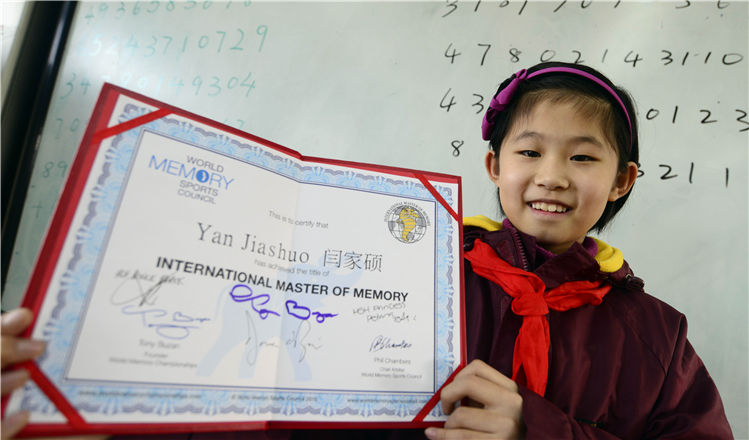China crucial climate partner: US official
Updated: 2015-12-23 11:20
By Hua Shengdun in Washington(China Daily USA)
|
||||||||
|
Todd Stern, special envoy for climate change at the US State Department and the US delegate to the Conference of Paris (COP), discusses the conference's outcome during a briefing at the Foreign Press Center in Washington on Tuesday. Pan Jialiang / for China Daily |
China and the US have developed a strong relationship on controlling global warming, said Todd Stern, special envoy for climate change at the State Department and the US delegate to the recent Conference of Paris (COP).
There is "nobody closer that we work with than China," Stern said on Tuesday at a briefing on the COP at the Foreign Press Center in Washington.
He described the bilateral meeting between Xi and Obama in Paris as "very cordial" and "very positive."
"President Xi talked about climate change as a bright spot in the relationship, talked about it as an illustration of the new model of major power relations," Stern said.
"Climate change has been a very important pillar of the China-US relationship, and I think the recent interaction between President Obama and President Xi has reflected that."
Stern said that once Obama returned to Washington from Paris, he wanted to stay engaged, so he talked to some of the world leaders, including Chinese President Xi Jinping.
"I think it is precisely a strong, close relationship that exists between the US and China," he said.
Stern described China as "really at this point a core partner of ours."
Ensuring a successful COP climate agreement was among the top priorities listed in a joint China-US presidential announcement in November 2014, which enabled the "already productive" China-US relationship to rise to "another new level", Stern said.
Since an informal talk between Xi and Obama in June 2013 at Sunnylands in California, China and the US have set ambitious goals together.
The US pledged to stop carbon dioxide emissions from the burning of fossils fuels. China set a self-imposed deadline of peaking emissions by the year 2030.
The agreement signed by 186 countries during the COP (Nov 30-Dec 12) includes a goal of limiting global warming to less than 2 degrees Celsius compared with pre-industrial levels, and a goal of 1.5 degrees; strong transparency and accountability on progress toward reaching targets; and regular reviews by experts as well as a peer process.
Stern has met his Chinese counterpart, Xie Zhenhua for dozens of times since the Copenhagen climate conference 2009. He described it as a "very, very productive relationship," a relationship that he said took off to another level with the bilateral announcement on climate change in 2013 and 2014.
Unlike what some news reports have speculated, Stern said the High Ambition Coalition that emerged during the Paris conference absolutely had nothing to do with trying to isolate China. "It didn't have anything to do with that," he said, adding that China had its own groupings and that's just the way business is conducted.
China currently ranks second in energy-efficiency investment for buildings with $18 billion, according to the latest market report from the International Energy Association.
"We are cooperating with the Chinese government to move from 80 percent coal-based plants to some new forms of energy substantially different, in one of the most complex electricity grids that human beings can ever build," said Jon Creyts, managing director at the Rocky Mountain Institute.
"China always plays a constructive role in fighting against global climate change and has close communication with parties concerned," said Foreign Ministry spokeswoman Hua Chunying, in response to the High Ambition Coalition.
Pan Jialiang in Washington contributed to this story.
- More aid from China set for Syria
- Japanese journalist reportedly being held in Syria
- New York City has warmest Christmas Eve on record
- One dead as fight leads to fatal shooting at North Carolina mall
- Trump's lead bodes well for Hillary Clinton's presidential bid
- Spanish Socialist leader insists no support for Rajoy

 China's top scientific achievements in 2015
China's top scientific achievements in 2015
 Yearend 2015: A picture and its story
Yearend 2015: A picture and its story
 Christmas celebrated across the world
Christmas celebrated across the world
 HK car show kicks off during Christmas season
HK car show kicks off during Christmas season
 10 major economic policies that will make a difference on lives
10 major economic policies that will make a difference on lives
 Santa Claus is busy in China
Santa Claus is busy in China
 Yearend 2015: Heartstopping images captured by daredevils
Yearend 2015: Heartstopping images captured by daredevils
 Girl becomes youngest Master of Memory
Girl becomes youngest Master of Memory
Most Viewed
Editor's Picks

|

|

|

|

|

|
Today's Top News
Shooting rampage at US social services agency leaves 14 dead
Chinese bargain hunters are changing the retail game
Chinese president arrives in Turkey for G20 summit
Islamic State claims responsibility for Paris attacks
Obama, Netanyahu at White House seek to mend US-Israel ties
China, not Canada, is top US trade partner
Tu first Chinese to win Nobel Prize in Medicine
Huntsman says Sino-US relationship needs common goals
US Weekly

|

|








